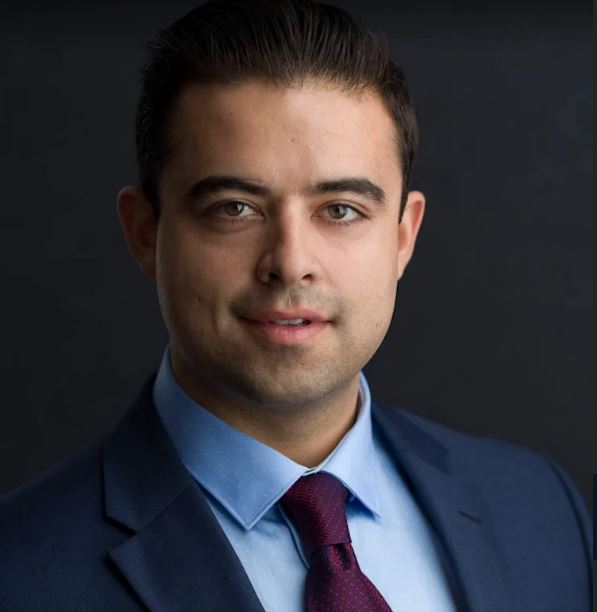Going through a divorce is an emotionally challenging and complex experience for anyone. With high emotions and overwhelming legal processes involved, it is challenging to figure out where to begin. If someone you know or you is considering a divorce, it’s essential to have a clear understanding of the family law related to divorce in Columbus, OH.
The Law Office of Dmitriy Borshchak, a team of experienced Columbus family law attorneys, is here to help you navigate this challenging period. Our attorneys understand the intricacies of divorce, and we’re dedicated to helping you through proceedings. In this guide, we’ll provide you with a comprehensive overview of divorce lawyer in Columbus, OH, so you’ll know what to expect during your divorce proceedings.
In Ohio, couples who are seeking to end their marriage have two common legal options to choose from divorce and dissolution. A divorce is a formal legal process where one spouse files a lawsuit against the other to dissolve the marriage. This method can involve negotiations or court proceedings to resolve any issues, such as property division or child custody. On the other hand, dissolution is a no-fault divorce agreement where both parties mutually agree to end their marriage without going to court. This option is generally less costly and faster than a divorce. However, it requires both parties to agree on all issues related to the separation, including property division, spousal support, and child custody.
A no-fault divorce, also known as dissolution, is an option for couples who no longer get along and believe their marriage is beyond repair. In Ohio, you can file for a no-fault divorce based on irreconcilable differences or an “irretrievable breakdown of the marriage.” This means that there is no hope for reconciliation due to incompatibility between the parties. To be qualified for a no-fault dissolution, at least one spouse must have lived in Ohio for six months. The process is simpler and less time-consuming than a formal divorce, and no proof of fault is necessary. Both parties must agree on all issues related to the separation, including the division of assets and spousal support. However, if one spouse denies the claim, you may need to file for a formal divorce that requires you to prove fault. At the Law Office of Dmitriy Borshchak, our experienced Ohio family law attorneys can help you determine if a no-fault divorce is the right choice for you and guide you through proceedings.
While many states in the US now recognize no-fault divorce, Ohio still upholds the concept of “fault” in divorce proceedings. This means that in order to end a marriage, fault or blame must be proven. If you’re considering filing for a fault-based divorce in Columbus, OH, you must have been a resident of the state for at least six months. To defend your case, you’ll need to file a legal complaint and provide evidence that your spouse is at fault based on one or more legal grounds. Navigating the complex legal process of a fault-based divorce can be difficult and emotionally draining. That’s why it’s important to seek the guidance of experienced family law attorneys like those at the Law Office of Dmitriy Borshchak. In Ohio, when filing for an at-fault divorce, you must have a legal reason, also known as “grounds” for divorce. Some of these grounds are more likely to cause legal arguments than others. If your spouse disputes your grounds for divorce, you’ll have to prove it in court. This can be a complicated process as you’ll need to demonstrate the truth of at least one of the grounds, we must procure evidence and identify witnesses who can testify to its veracity.
Under Section 3105.01 of the Ohio Revised Code, the state recognizes various legal grounds for divorce. One of these is gross neglect of duty, which is when a spouse severely neglects the marital duties of “respect, fidelity, and support” in a way that significantly affects the marriage. Extreme cruelty, which can be physical or mental, is also a ground for divorce if it makes it unsafe or improper for the couple to live together as spouses. Adultery, bigamy, willful desertion or abandonment, fraudulent contract, habitual drunkenness, imprisonment, procurement of a divorce outside the state, and separate living without cohabitation for at least one year are also legal grounds for divorce in Ohio. If you’re filing for divorce on these grounds, you’ll need to provide proof in court to support your case.
Once the grounds for divorce have been established, the court will then turn its attention to resolving any additional matters pertaining to the divorce. These matters may include property division, spousal support, parental rights, and the calculation of child support.
In dividing the marital property, an equitable approach is commonly used by the court that considers each party’s contributions to the marriage and aims to achieve a fair balance. The court applies the same approach to determining child and spousal support. The goal is to ensure that both parties are able to maintain a reasonable standard of living after the divorce, without one party being unfairly advantaged or disadvantaged.
In Ohio, the division of marital property in divorce proceedings can be influenced by the misconduct of either party. In the event that one party has expended marital funds on certain activities that did not benefit the family, such as engaging in an extramarital affair, the court may award the party that is deemed innocent entitled to a larger portion of the property. The court determines what qualifies as marital property by referencing relevant case laws and statutory laws, which are generally equally divided unless a written explanation is provided that equal division would be unfair to one party.
Ohio statutes have clear distinctions between separate and marital property. Marital property encompasses any property acquired during the marriage, such as personal property, real estate, and retirement plans, and intangible property like bank accounts, stocks, and bonds. It may also include an increase in the value of separate property due to the contribution or labor of either spouse. The term separate property encompasses all personal, real, or intangible assets that were acquired and owned before the marriage, as well as any property received through inheritance or any appreciation or income generated by separate property that was not the result of either spouse’s contribution during the marriage. However, if any portion of a personal injury settlement compensates for damages or lost wages during the marriage, or if it covers medical bills that were paid for with marital funds, that portion may not be included in the distribution of assets. Additionally, if a gift was received by one spouse after the marriage and can be proven to have been intended for that spouse only, it may be taken into consideration during the distribution of assets.
In some cases, the court may make a distributive award involving the separate property of one spouse to achieve a fair outcome. For instance, if it is established that a spouse committed financial misconduct, such as squandering funds, concealing assets, or fraudulently disposing of funds, the court may order a distributive award from the guilty spouse’s separate property, or a more substantial share of the marital property, as restitution to the other spouse.
At the Law Office of Dmitriy Borshchak, our experienced divorce lawyers in Columbus, OH, can help you understand the differences between these two options and guide you through the proceedings. Contact us today to schedule a consultation and learn more about your legal options.
Law Office of Dmitriy Borshchak
1650 Lake Shore Dr #150
Columbus, OH 43204, United States
614-334-6851
About The Author
 Dmitriy Borshchak is a dedicated Columbus family lawyer and founding attorney of The Law Office of Dmitriy Borshchak. At the firm, he regularly assists clients with a broad range of complex legal matters, including divorce, child custody, spousal support, and much more. No matter how complex or difficult your case may be, Dmitriy takes the time to listen to your story and learn about your goals. He draws on his own personal experience with the family law system in order to provide you with compassionate guidance and methodical strategies designed to help you secure the best outcome possible.
Dmitriy Borshchak is a dedicated Columbus family lawyer and founding attorney of The Law Office of Dmitriy Borshchak. At the firm, he regularly assists clients with a broad range of complex legal matters, including divorce, child custody, spousal support, and much more. No matter how complex or difficult your case may be, Dmitriy takes the time to listen to your story and learn about your goals. He draws on his own personal experience with the family law system in order to provide you with compassionate guidance and methodical strategies designed to help you secure the best outcome possible.





Be First to Comment